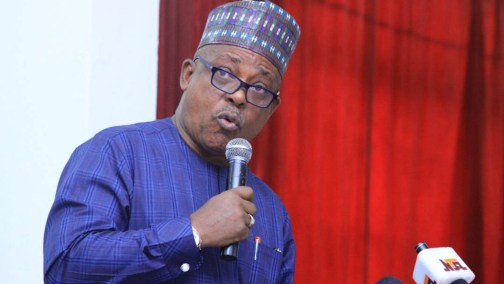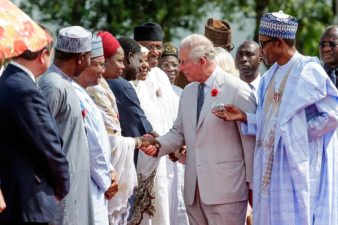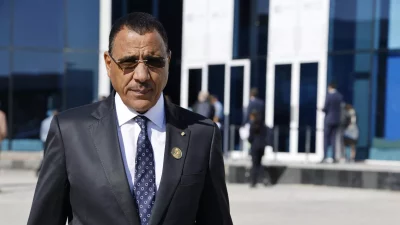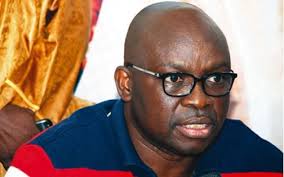The Buhari Media Organisation (BMO) has accused the Peoples Democratic Party (PDP) of painting a rosy but false picture of pre-May 2015 Nigeria when it handed over a country on the verge of bankruptcy with decrepit infrastructure, in spite of an oil boom.
In a statement signed by its Chairman Niyi Akinsiju and Secretary Cassidy Madueke, sent to The DEFENDER, the group said the President Muhammadu Buhari administration deserves to be judged on its record of performance vis-a-vis what it inherited from the profligate former ruling party.
“We noticed how PDP jumped on the President’s straight-from-the-heart appeal to government critic, to make the type of claims that made some Nigerians describe the party as a University of lies. We cannot but agree with those who came up with that nomenclature for a party that is always cooking up figures or plucking numbers from the air to give a false impression of its 16 years in power at the centre.
“What type of people would, with a straight face, claim that ’30 million businesses crumbled’ under the Buhari administration while 60 million Nigerians lost their means of livelihood’? We dare say that only a party that has elevated outright falsehood to an art form could cause such hare-brained positions to be published when World Bank data show that the country had about 112m people living under the poverty threshold in 2012 and 79m in 2019.
“We invite Nigerians to note that this is not the first time PDP would twist facts and figures. it has a lot of fake figures and numbers its media handlers regularly dish out to cast the All Progressives Congress (APC)-led government in a bad light, but we know that the public cannot be easily be hoodwinked.
”For the avoidance of doubt, contrary to the impression that President Buhari inherited a robust economy, the then PDP government had been borrowing domestically from commercial banks, at commercial rates, to pay salaries of Federal Government workers at the first sign of falling oil price.
“Besides, between June 2014 and June 2015, the country lost more than four per cent in its GDP, which declined from 6.53% in quarter 2 of 2014 to a low of 2.35% in June 2015 and left a debt burden of $57bn yet the former ruling party takes delight in boasting that it left behind a booming economy,”.
BMO reaffirmed that President Buhari had since assuming office done far more than his predecessors even at a time crude oil price fell to a record low.
“As the President said this government has had to struggle to pay debts which were not tied to any verifiable projects, invest in road repairs and rebuilding as well as revamping the rail network and provide power by entering into government-to-government agreements without a need for middle-men.
“In case PDP elements need to be reminded, the three previous administrations before this current one had racked up more than N3trn in unpaid contract sums to contractors, plus another $6billion in unpaid joint venture cash call to participating oil companies.
“Power generation and distribution were below 2000 megawatts, railway lines had been breached by trees and bushes growing on the railways, the then Abuja-Kaduna standard gauge had been all but abandoned while roads and bridges across the country had become dangerous routes to commuters
“We make bold to say that the outlook in 2015 was quite depressing until the coming of the redemptive Buhari administration which in its first full quarter in office -July to September- began to turn the economy around, growing it from the PDP-era last quarter’s 2.35% to 2.85% despite oil prices falling to as low as $23 a barrel.
“It was within this period that the government paved the way for the country to move from 62 to 30 in the global ‘Ease of Doing Business’ ranking and most importantly pushed Nigeria ultimately to the top of Africa’s top-performing economy and 25 in the world.
“The recovery was helped by a conscious plan manifested in the Economic Recovery and Growth Plan (ERGP) and later the Economic Sustainability Plan (ESP) which is delivering infrastructure even in the face of a pandemic-induced recession.
“it is also a known fact that this government introduced what has been described as the largest social welfare scheme in Sub-Saharan Africa-the National Social Investment Programme (NSIP) which consists of initiatives that have helped cycled millions of Nigerians out of poverty”, the statement added.
It reassured Nigerians that President Buhari would make good his promise to bequeath a more structurally resilient economy.




